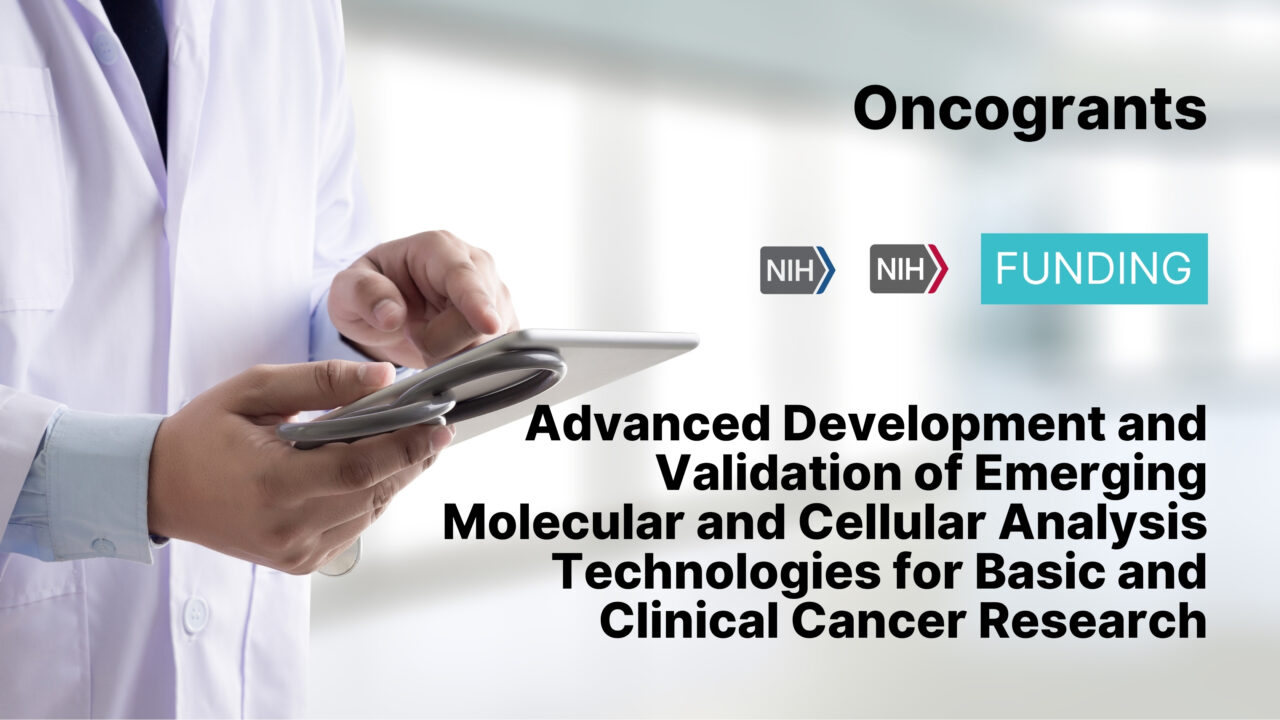Supports Phase II (R33) projects that have already demonstrated feasibility (with preliminary data) for novel technologies to target, probe, or assess molecular and/or cellular features of cancer biology. Applications must propose further development, optimization, and rigorous validation of those technologies—beyond proof-of-concept—to enable broad adoption in basic, clinical, or epidemiological cancer research. Responsive projects should address unmet technical needs (e.g., early detection, diagnostics, treatment, epidemiology, health-disparities research) and demonstrate quantitative performance measures in a biologically relevant context.
Eligibility Criteria
- Eligible organizations: U.S. and foreign higher-education institutions; nonprofits; for-profit entities (including small businesses); local/state governments; faith-based or community organizations; Tribal organizations; and other entities listed in Section III.1.
- PD/PI(s) must have an eRA Commons account.
- Projects must be technology-development–focused (no clinical trials).
- Must include supportive preliminary data showing feasibility and specify remaining development/validation gaps.
- Applications lacking clear, quantitative performance measures or focused on biological hypotheses (rather than tool validation) will be deemed nonresponsive.
Funding Details
- Mechanism: R33 Exploratory/Developmental Grant (Phase II)
- Direct costs: Up to $300,000 per year
- Project period: Up to 3 years
- Estimated awards (FY 2026): ~10, totaling $4.3 million
- No clinical trial or toxicology costs beyond technology validation
Key Deadlines
- Letter of Intent: 30 days before application due date
- Application Due Dates:
- October 3, 2025 (peer review February 2026; earliest start July 2026)
(All applications due by 5:00 PM applicant’s local time)


